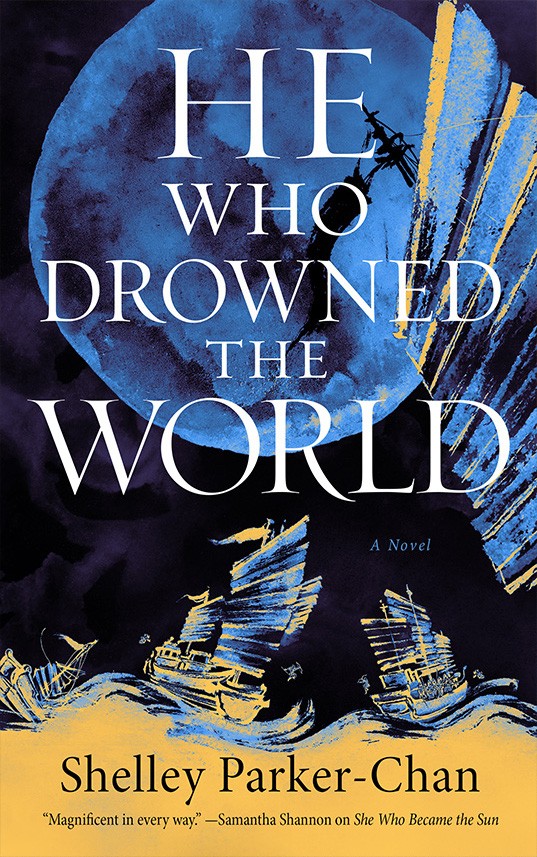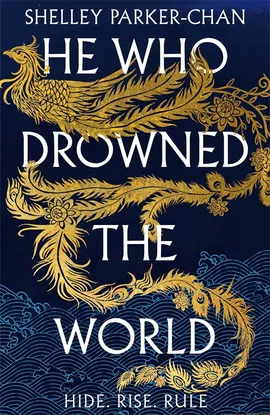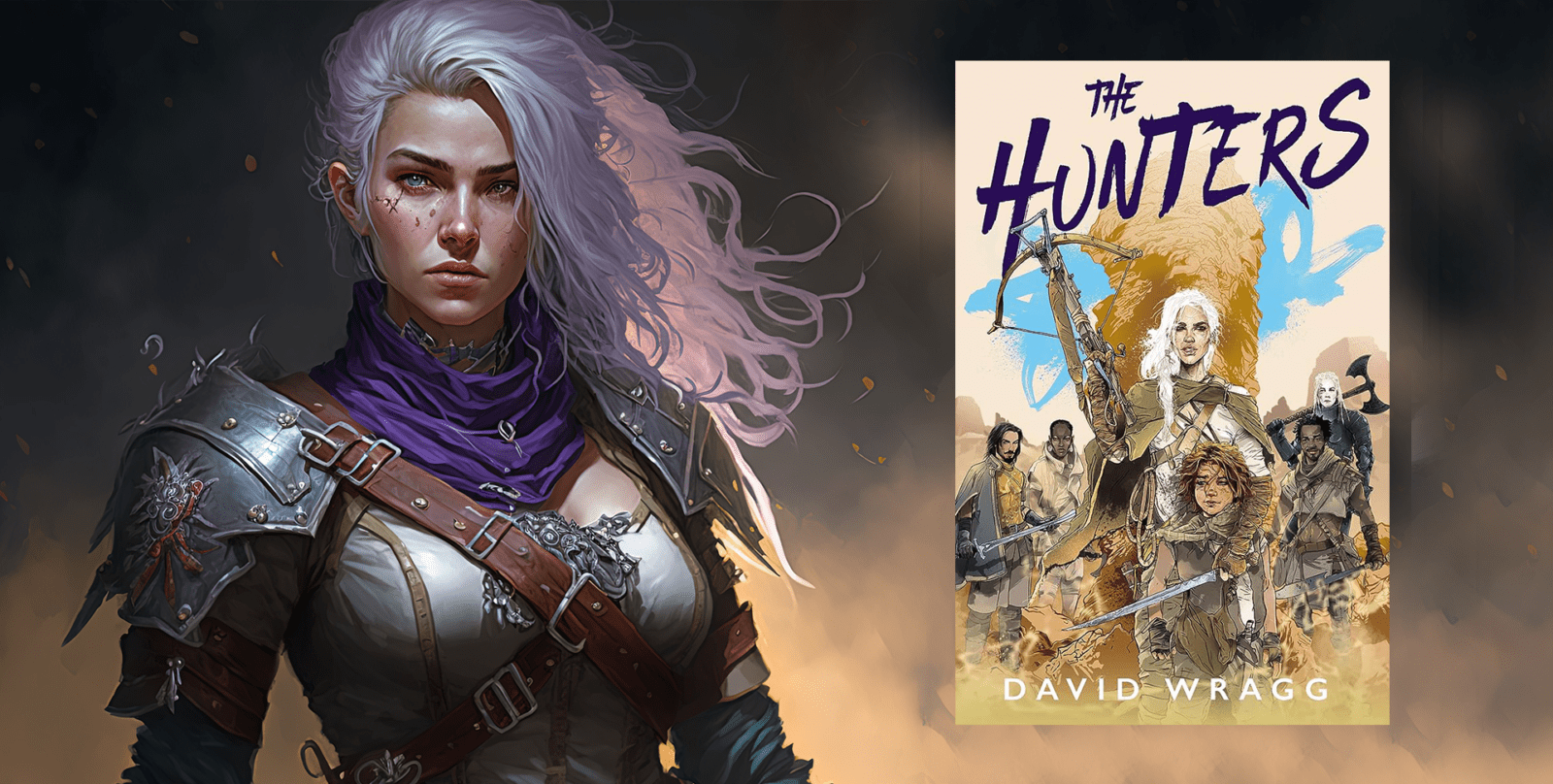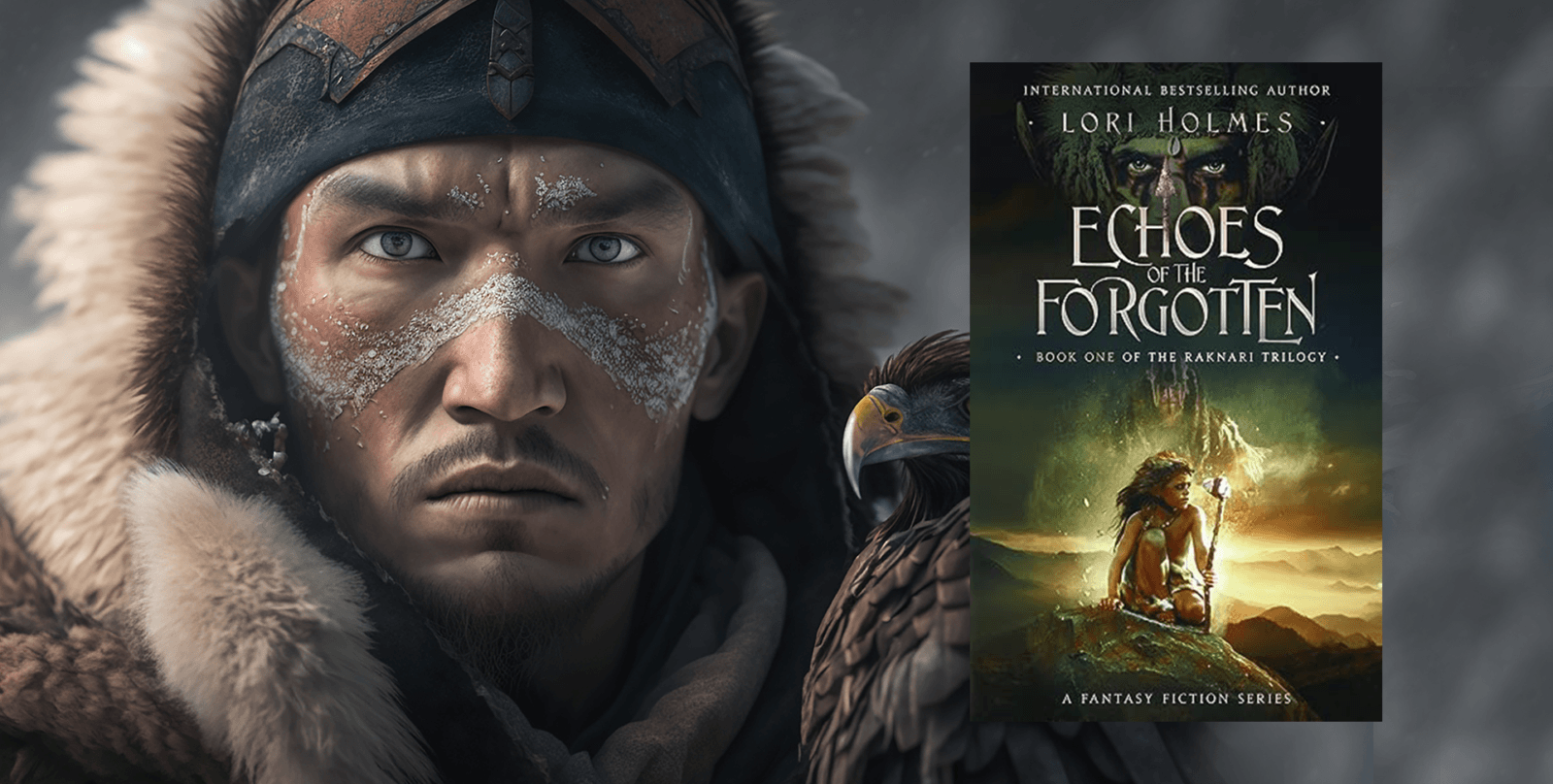Introduction:
How much would you give to win the world?
Zhu Yuanzhang, the Radiant King, is riding high after her victory that tore southern China from its Mongol masters. Now she burns with a new desire: to seize the throne and crown herself emperor.
But Zhu isn’t the only one with imperial ambitions. Her neighbor in the south, the courtesan Madam Zhang, wants the throne for her husband—and she’s strong enough to wipe Zhu off the map. To stay in the game, Zhu will have to gamble everything on a risky alliance with an old enemy: the talented but unstable eunuch general Ouyang, who has already sacrificed everything for a chance at revenge on his father’s killer, the Great Khan.
Unbeknownst to the southerners, a new contender is even closer to the throne. The scorned scholar Wang Baoxiang has maneuvered his way into the capital, and his lethal court games threaten to bring the empire to its knees. For Baoxiang also desires revenge: to become the most degenerate Great Khan in history—and in so doing, make a mockery of every value his Mongol warrior family loved more than him.
All the contenders are determined to do whatever it take.
Review:
He Who Drowned the World, the second and final installment of The Radiant Emperor duology by Shelly Parker-Chan is hands down one of the most brilliant books I have read in the year 2023. It’s predecessor, She who Became the Sun had already set the bar so high, yet He Who Drowned the World” effortlessly surpassed it, raising the bar to unprecedented heights and redefining the benchmarks for the art of crafting a historical fantasy masterpiece. True to Chan’s signature style in The Radiant Emperor duology, almost all the protagonists in this book remained unabashedly queer, morally grey, some downright toxic and all were power hungry, who stop at nothing in their relentless pursuit of personal ambitions, regardless of the cost or sacrifices involved.
By this juncture, it is indisputable that Chan has unequivocally established themselves as one of the foremost authors in the realm of historical and high fantasy literature. Their ability to intricately weave a multifaceted narrative, complete with its ebbs and flows, alongside evoking poignant and heart-wrenching emotions, is truly unparalleled. Moreover, their skillful craftsmanship is further exemplified through the vivid tapestry they have expertly painted, depicting a world of remarkable depth and complexity. The exceptional world-building on display serves as a testament to Chan’s immense talent and contributes to the overall brilliance of their storytelling.
Amidst the brilliance of its world building, intricately woven plot, and multi-layered character arcs, one exceptional aspect that radiates throughout He Who Drowned the World is Chan’s resolute commitment to advocating for queer representation. Regardless of the reader’s own gender or sexual orientation, Chan masterfully ensures that every insult hurled at the characters, every prejudiced blow that lands upon their bodies, resonates deeply within the reader’s core. With utmost sensitivity, Chan delivers a profound and immersive experience, compelling the reader to keenly feel the weight of discrimination and violence that these characters endure, fostering a powerful empathic connection. Moreover, Chan skillfully illuminates the historical presence of xenophobia, homophobia, and ableism in ancient East Asia. Furthermore, notable recognition should be attributed to the author for shedding light on the practice of foot binding, which was a profoundly excruciating ordeal endured by women in their pursuit of societal ideals of feminine aesthetics within East Asian cultures.
Now to the characters. First and foremost, let us talk of our beloved Zhu Yuanzhang. From her humble beginnings as a peasant orphan, daringly seizing her brother’s destiny as Zhu Chongba, to her eventual ascension as The Radiant Emperor, Zhu Yuanzhang’s journey is a tumultuous one, marred by numerous hardships. Confronting a relentless barrage of discrimination solely due to her gender, she boldly discards societal expectations, sacrificing her very identity to pursue her ambitions. Her path is marked by an unwavering determination to be recognized, clawing and scrambling her way through the obstacles that obstruct her progress. Zhu Yuanzhang’s character possesses an incredible power, unveiling a narrative that is both brutally honest and immersed in bloodshed, presenting an unflinching portrayal of her remarkable persona. Chan’s depiction of Zhu’s character development in He Who Drowned the World is truly remarkable and surpassed all my expectations. In contrast to her portrayal in the previous book, Zhu undergoes a profound journey of emotional and physical tribulations in this installment. Despite facing heart-wrenching circumstances, she emerges as a character who exhibits enhanced qualities of empathy, patience, and strategic thinking. This transformation in Zhu’s persona is a testament to Chan’s exceptional storytelling prowess.
General Ouyang undeniably stands out as one of the most gripping and masterfully crafted characters I have encountered in my recent literary explorations. His portrayal exudes a profound darkness, skillfully brought to life by the author’s pen. Given his background as a Nanren child enslaved by the Mongols, forced to witness the brutal execution of his family and enduring the horrific castration as a consequence of his father’s rebellion, it is no wonder that Ouyang is consumed by overwhelming hatred and rightfully so. Witnessing Ouyang’s gradual descent into the abyss of an unfathomably murky emotional landscape was undeniably heart-wrenching. Each passing day seemed to erode his spirit, causing him to fade away before our eyes. The weight of his traumatic past and the absence of a guiding light in his life left him adrift, struggling to find a path through the darkness that threatened to consume him completely. It was truly a poignant portrayal that tugged at the reader’s heartstrings, evoking a profound sense of empathy and sorrow for Ouyang’s plight.
The interactions between Zhu and Ouyang can only be likened to the catastrophic force of a volcano erupting or a devastating tsunami crashing upon a country’s shores. They possess a mesmerizing power that is both hauntingly beautiful and overwhelmingly destructive. Like a morbid spectacle, one may feel the inclination to avert their gaze, yet they find themselves unable to tear their eyes away. The intensity of their connection exudes a magnetic pull, captivating the audience in a way that is simultaneously enchanting and disconcerting. It is a testament to the author’s skill in crafting a dynamic and unforgettable relationship that leaves an indelible mark on the reader’s psyche.
Baoxiang and Lady Zhang truly added a captivating dimension to the narrative with their individual perspectives and backgrounds. Without revealing any spoilers, it is safe to say that their journey in He Who Drowned the World was nothing short of harrowing. Despite knowing the eventual outcome they would face, it was impossible not to wholeheartedly root for them. The trials they endured were nothing short of hellish, yet their resilience and strength shone through, eliciting a deep emotional investment. Their fates were intertwined with the reader’s empathy, resulting in an unforgettable and bittersweet connection.
In conclusion, He Who Drowned the World stands as one of my most eagerly anticipated books of 2023. Despite my initial worries whether Chan could surpass the brilliance of She Who Became the Sun, I was pleasantly proven wrong and I’ve never been this happy to be wrong either. This latest installment is an extraordinary masterpiece that excels in every conceivable aspect and I cannot wait to get my hands on a physical copy upon its release. I extend my heartfelt gratitude to NetGalley, Tordotcom, and Shelley Parker-Chan for the privilege of receiving an advance reader copy.
Rating:

Book Covers







